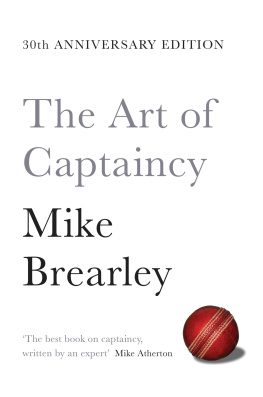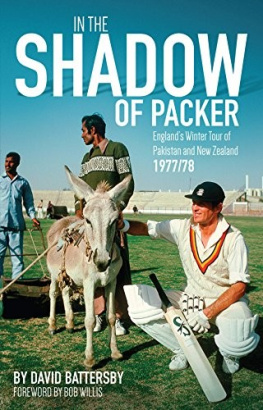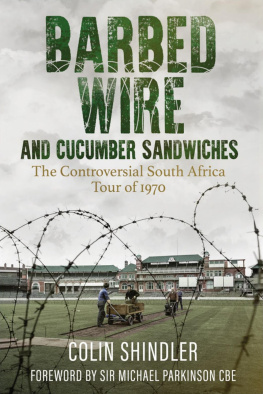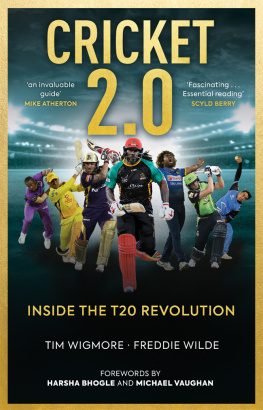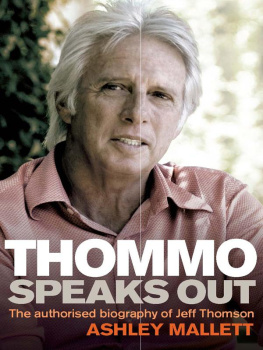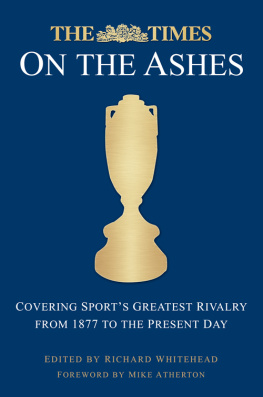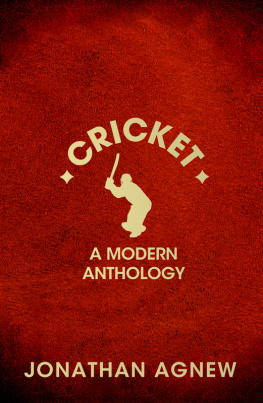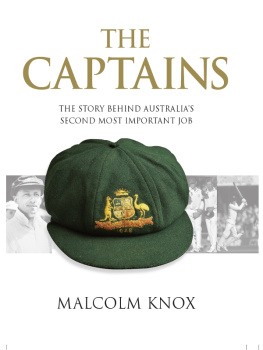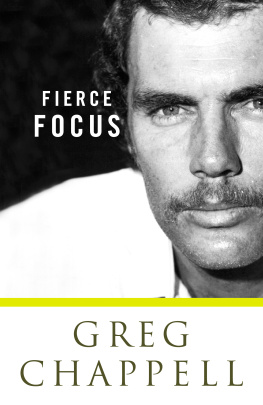Mike Brearley
The Art of Captaincy
WHAT SPORT TEACHES US ABOUT LEADERSHIP
PAN BOOKS
To Mischa and Lara
ACKNOWLEDGEMENTS
I should like to thank David Frith both for his specialist photo research and his help on historical matters; Jim Coldham for answering a number of tricky questions on the history of cricket; and Professor G. Derek West for compiling the original index. Once again, I am grateful to Philippa Kaye and M.N. Patel for typing from none-too-legible manuscripts, and to Richard Cohen, the editor of the original, for his support and help.
I should also like to put right some omissions in the previous acknowledgements. I should thank my father, Horace Brearley, whose lifelong role in my cricket is referred to in the book; and my mother for her devoted support, as well as her patience with all this cricket.
There are too many people to thank individually players, friends, teachers, psychoanalysts, for a start.
Finally I should like to give my heartfelt thanks to my family and especially my wife Mana Sarabhai, for all their love, and for the ongoing lessons in teamwork.
FOREWORD
In writing about The Art of Captaincy I want to capture something of Mike Brearley himself. At the outset, Mike points out that the book is not a formal autobiography. Thats true. But the result is far more revealing about its author than most explicitly autobiographical books. In describing the challenges he faced as a cricket captain and his responses to them, Mike reveals how he thought and how he acted. In the process, we see the subtle interplay between intelligence and the practical world.
Mike is a man of contradictions. His great gift is for holding those contradictions in balance, in constructive equipoise, rather than trying to artificially resolve them. His captaincy was an expression, the perfect expression, of those contradictions. He enjoyed being complex and hard to read, both central to his success. In the same vein, The Art of Captaincy is a subtle, wise book. But it is hard to pin down or summarise because it resists tidying up the messy, practical question of leadership. The book is like the man: it presents both sides of the argument, suggesting that the answer lies in appreciating the appropriate balance. Judgement is what really matters, not overarching theory.
The word misunderstood is usually associated with failure a consistently misunderstood man is usually making a grievance. So we tend to neglect a parallel truth: many highly successful people are also misunderstood, perhaps deliberately so. They are happy to throw others off the scent; and the pack is content to follow the crowd of conventional wisdom.
Rereading The Art of Captaincy suggested to me that Mikes public reputation though justly high sometimes misses the point about what made him so effective for such a long time. It is now thirty-four years since the Ashes summer of 1981, when those improbable, glorious victories cemented Mikes reputation as a unique captain. But it is important to review the book, not the legend. The terms thinker, tactical genius, academic, magician are thrown around lightly. Read this book and youll see that some other terms, rarely applied to Mike, are just as appropriate: arch competitor, fighter and, sometimes, manipulator.
As a former professional philosopher, Mike has a highly trained and academic mind. So his register his careful use of language and an urbane, donnish tone suggests the cloistered world of academia. But his temperament is intensely practical. He is only interested in abstract ideas up to a point. Cricket writers such as Peter Roebuck and Simon Barnes the Platonists, if you like have been fascinated by capturing the essence of things, aiming for the purest and clearest distillation. Mike is more interested in the ways that people resist over-tidy classification. He is at home in the grey areas. Indeed, his empathy for players central to his leadership was informed partly by acceptance of his own flaws. The sporting world is often guilty of pigeonholing players into simplistic categories. In contrast, Mike understood that bravery, resilience and confidence are not absolutes: they always exist on a spectrum. We are all, to varying degrees, gutsy and fearful, confident and uncertain. And that degree is always in flux, never fixed. Mikes ability to identify his own shortcomings (and strengths) helped him to recognise them in others. A more resolved man would have been a less perceptive captain.
Another misapprehension about Mike is that he could wave his magic wand and turn around any cricket team in a few seconds. This was reinforced by the miracle of 1981. The context is missed. By then, Mike had been a professional captain for eleven seasons. The captain who re-joined the England team (a team he had recently captained, after all) was not coming in cold. He brought with him a store of experience, knowledge and respect. Passing Ian Botham on the way to bat in the nets, Mike famously joked, Want to get your confidence up, Ian? the implication being that Mikes batting would make Bothams bowling look good. But only an established leader would find it so easy to play himself down. The confidence that flows from ten years self-awareness and judgement allowed Brearley to gauge the situation perfectly.
But how often, in todays impatient environment, are captains allowed to develop for over a decade? Ironically, invoking Mikes example We need a natural leader, or If only we had a tactical genius is often used by coaches, pundits and fans to justify decisions that actively weaken the foundations on which true leadership depends. I knew one coach, who, though a kindly man, routinely undermined the teams captain through indiscretion and loose gossip. He said he longed for a strong captain to take control of the group. In reality, he prevented any captain from doing so by denying him sufficient scope, security or trust.
So its worth recalling the long-term nature of Mikes success as captain. He took over as captain of Middlesex in 1971 and the seasons of 1971, 1972, 1973, 1974 and 1975 slipped by without Middlesex winning the championship. Mike has privately told me that in those early seasons he often found the job very difficult. Did he have enough support? Was he changing the culture of the club in the ways he hoped? Results improved, but not always evenly. The graph was clearly pointing upwards, but its trajectory did not point inevitably towards a glorious era for Middlesex (let alone England) under Mikes leadership.
In that six-year period, Mikes gift for patience was tested. So was the clubs. As I write this, only one of the eighteen captains of the first-class counties has been leader for six uninterrupted seasons. I am not arguing that there are dozens of Mike Brearleys out there, if only clubs would persevere with them. But it is clear that it took Mike a long time to establish all the elements of his captaincy at Middlesex the success that subsequently underpinned his triumphs for England. If Middlesex had been less patient or, put differently, less in need of stability and control from their captain then England might have been deprived of their most iconic captain.
Mike relates Raymond Illingworths judgement on him. The luckiest of England captains, that was Illingworths curt assessment. In one crucial respect, Illingworth was right, but not in the way he meant. Illingworths argument was that Mike was lucky in his opponents, especially given that Australia were weakened by losing many top players to Kerry Packers World Series Cricket. A much more interesting aspect of Mikes good fortune was its broader timing. Bear in mind the following two dates. In 1962, when the archaic distinction between amateurs and professionals was abolished, English cricket turned fully professional. In 1986, the England team appointed its first fully professional coach, Mickey Stewart. In other words, between 1962 and 1986, English cricket was fully professional but largely uncoached, in any formal sense of the term. The county clubs had players fully at their disposal they owned their time, their attention and their livelihoods. But coaches had not yet been appointed to run the day-to-day organisation of the cricket. This was still the preserve of the captain.

